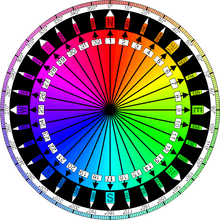West
See also: west
English
Proper noun
West
- The Western world; the regions, primarily situated in the Western Hemisphere, whose culture is derived from Europe.
- (historical) the Western Bloc (the noncommunist countries of Europe and America)
- (US) The Western United States in the 19th century era of terrestrial expansion; the Wild West.
- 1898, Winston Churchill, chapter 1, in The Celebrity:
- I was about to say that I had known the Celebrity from the time he wore kilts. But I see I will have to amend that, because he was not a celebrity then, nor, indeed, did he achieve fame until some time after I left New York for the West.
-
- The western states of the United States.
- The European Union; a Western Region that is primarily an economic and political Bloc that covers 28 member states.
- Regions or countries lying to the west of a specified or implied point of orientation.
- The western part of any region.
- Senegal is a nation that lies in the West.
- The one of four positions at 90-degree intervals that lies to the west or at the left of a diagram.
- A person (as a bridge player) occupying this position during a specified activity.
- A surname for a newcomer from the west, or someone who lived to the west of a village.
Derived terms
Translations
Western world
|
|
Western block, Western Europe
Western Europe, non-Cold War concept
|
German

West (on the left side of the card)
Etymology
From Old High German west, from Proto-Germanic *westrą. Compare Dutch, English, and West Frisian west, Danish vest.
Pronunciation
- IPA(key): /ˈvɛst/
- Rhymes: -ɛst
audio (file)
Noun
West m (genitive Wests or West, no plural)
- the west (used without article; a short form of Westen)
- der Wind kommt aus West
- the wind is coming from the west
- der Wind kommt aus West
- a wind coming from the west (used with article)
Antonyms
This article is issued from
Wiktionary.
The text is licensed under Creative
Commons - Attribution - Sharealike.
Additional terms may apply for the media files.